Related Research Articles
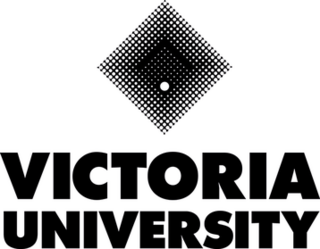
Victoria University is an Australian public research university based in Melbourne, Victoria. It is a dual-sector university, providing courses in both higher education and technical and further education (TAFE).
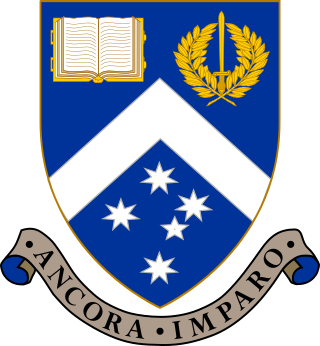
Monash University is a public research university based in Melbourne, Victoria, Australia. Named after World War I general Sir John Monash, it was founded in 1958 and is the second oldest university in the state. The university has a number of campuses, four of which are in Victoria, one in Malaysia and another one in Indonesia. Monash also has a research and teaching centre in Prato, Italy, a graduate research school in Mumbai, India and graduate schools in Suzhou, China and Tangerang, Indonesia. Courses are also delivered at other locations, including South Africa.

The Swinburne University of Technology is a public research university in Melbourne, Australia. It is the modern descendant of the Eastern Suburbs Technical College established in 1908, renamed Swinburne Technical College in 1913 after its co-founders George and Ethel Swinburne. It has three campuses in metropolitan Melbourne: Hawthorn, where its main campus is located; Wantirna; and Croydon, as well the Swinburne University of Technology Sarawak Campus in the East Malaysian state of Sarawak. It also offers courses online and through its partnered institutions in Australia and overseas.

The University of South Australia is a public research university based in Adelaide, South Australia. Established in 1991, it is the successor of the former South Australian Institute of Technology. Its main campuses along North Terrace are adjacent to the Australian Space Agency in Lot Fourteen and forms part of the Adelaide BioMed City research precinct. It also has a presence in the Adelaide Technology Park in Mawson Lakes. In mid-2023, it agreed to merge with the neighbouring University of Adelaide to form Adelaide University.
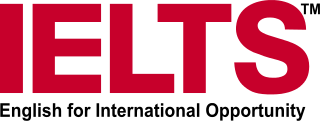
International English Language Testing System is an international standardized test of English language proficiency for non-native English language speakers. It is jointly managed by the British Council, IDP and Cambridge English, and was established in 1989. IELTS is one of the major English-language tests in the world. The IELTS test has two modules: Academic and General Training. IELTS One Skill Retake was introduced for computer-delivered tests in 2023, which allows a test taker to retake any one section of the test.

The University of Notre Dame Australia is a public Roman Catholic university with campuses in Perth, Broome and Sydney. It was established in 1989 by the Archdiocese of Perth with early support from its founding partner and namesake the University of Notre Dame (NDUS) in the United States. It was originally proposed as a means to train teachers and nurses for the Catholic Church's extensive school and hospital network, but has since expanded into other fields.

The National Tertiary Education Union (NTEU) is an Australian trade union for all higher education and university employees. It is an industry union, and the only union working exclusively in the Australian university sector.
The National Liaison Committee for International Students in Australia (NLC) was first formed in 1986 in an attempt to combat the Australian Government's introduction of the full-fee paying international students program. Formerly a member of the National Union of Students (Australia),.
Melbourne Polytechnic, formerly NMIT, is an institute of higher education and vocational education (TAFE) located in Melbourne, Australia that has been operating since around 1910.
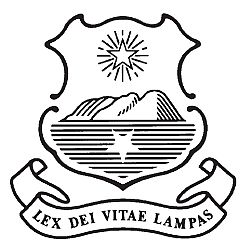
Presbyterian Ladies' College, Melbourne (PLC), is an independent, private, Presbyterian, day and boarding school for girls, located in Burwood, an eastern suburb of Melbourne, Victoria, Australia.
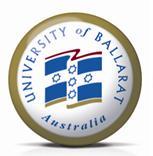
The University of Ballarat, Australia was a dual-sector university with multiple campuses in Victoria, Australia, including its main Ballarat campus, Melbourne, Sydney, and Adelaide that were authorized by the university to provide diploma, undergraduate and postgraduate programs. The university offered traditional programs, including business, information technology, building and construction, engineering, mining, education, social sciences, nursing, hospitality, and art.
Zbych Trofimiuk is a Czech-Australian language teacher, academic, and actor. He is known for his award-winning performance as Mike Masters in the children's television adventure series Sky Trackers, and as the lead character Paul Reynolds in the children's science fiction series Spellbinder.

Melbourne Law School is one of the professional graduate schools of the University of Melbourne. Located in Carlton, Victoria, Melbourne Law School is Australia's oldest law school, and offers J.D., LL.M, Ph.D, and LL.D degrees. In 2021–22, THE World University Rankings ranked the law school as 5th best in the world and first both in Australia and Asia-Pacific.
Shafston International College is a private education institution for international students located in Brisbane and the Gold Coast, Queensland, Australia. It offers vocational training, Adult English language programs, High School Preparation, Study Tour and University Pathway programs. In November 2020, it was announced that Shafston would temporarily close, with the building and contents to be auctioned. In the mid of 2021, Shafston International College has completed the ownership transition and re-open the campus to the international market.
Korowa Anglican Girls' School is a private, Anglican, day school for girls, located in Glen Iris, a suburb of Melbourne, Victoria, Australia.

Tertiary education in Australia is formal education beyond high school in Australia, consisting of both government and private institutions and divided into two sectors; Higher Education and Vocational Education and Training (VET) provided by government-owned TAFEs & private Registered Training Organisations (RTO). Australian Qualifications Framework (AQF), the Australian national education policy, classifies tertiary qualification into 10 levels: level 1 to 4 vocational certificates ; level 5 & 6 undergraduate diploma and advanced diploma; level 6 associate degree; level 7 bachelor degree, level 8 bachelor honours degree & graduate certificates and graduate diplomas; level 9 for master's degree; and level 10 PhD. Most universities are government owned and mostly self-regulated. For other institutes there are two national regulators for tertiary education for registration, recognition and quality assurance of both the "provider institutes" as well as the "individual courses" provided by the providers. Tertiary Education Quality and Standards Agency (TEQSA) regulates institutes which provide education from level 5 or above. Australian Skills Quality Authority (ASQA) regulates institutes which provide education from level 1 to level 6.

Australian Jews, or Jewish Australians, are Jews who are Australian citizens or permanent residents of Australia. In the 2021 census there were 99,956 people who identified Judaism as their religious affiliation and 29,113 Australians who identified as Jewish by ancestry, an increase from 97,355 and 25,716, respectively, from the 2016 census. The actual number is almost certainly higher, because being a Jew is not just about being religious, but the census data is based on religious affiliation, so secular Jews often feel it would be inaccurate to answer with "Judaism". Also, since the question is optional, many practising Holocaust survivors and Haredi Jews are believed to prefer not to disclose their religion in the census. By comparison, the Israeli newspaper Haaretz estimated a Jewish-Australian population of 120,000–150,000, while other estimates based on the death rate in the community estimate the size of the community as 250,000, which would make them 1% of the population. Based on the census data, Jewish citizens make up about 0.4% of the Australian population. The Jewish community of Australia is composed mostly of Ashkenazi Jews, though there are Jews in Australia from many other traditions and levels of religious observance and participation in the Jewish community.
British Study Centres (BSC) is a group of English language schools consisting of eight adult language schools and seventeen junior centres, including the City Football Language School in partnership with Manchester City, with the majority of schools and centres based in the UK. The head office is located in Brighton & Hove, East Sussex. Today, British Study Centres (BSC) specialises in English language training for adults and young learners, teacher training courses for UK and overseas teachers and University Pathway programmes in partnership with NCUK.

Discover English is an English language college located in Melbourne, Victoria, Australia. Discover English offers general and specialised courses including General English, English for Academic Purposes, Business English, IELTS Preparation and Cambridge ESOL Preparation. The college also operates as an exam centre for the Occupational English Test (OET)
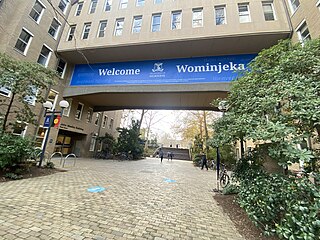
Australia ranked third in top study abroad destinations with a total market value of over 5 billion AUD generated by international students in 2018. In 2023, 786,891 international students were enrolled in educational programs in Australia, which was 27% higher than the previous year. In 2024 this is forecasted to increase again by 18%. They come to gain a high-quality education, possibly immigrate, or to experience a different life. Each year, many new international students will enroll in Australian courses and add to the already significant international student body around the country.
References
- 1 2 3 4 Stacey, Viggo (4 September 2023). "English Australia celebrates four decades". The PIE News. Retrieved 5 January 2025.
- ↑ "ELICOS". Concise Oxford Companion to the English Language. Oxford University Press. 1998. Retrieved 5 January 2025– via Gale Encyclopedia.com.
- 1 2 Preston, Yvonne (26 February 1991). "A Debacle, in any Language". The Sydney Morning Herald. p. 32. Retrieved 5 January 2025.
- ↑ Erlich, Rita (9 September 1997). "Billion Dollar Syntax". The Age. Melbourne, Victoria, Australia. p. 72. Retrieved 5 January 2025– via Newspapers.com.
- 1 2 "EA Journal: A Publication of the ELICOS Association of Australia". Catalogue | National Library of Australia. Retrieved 5 January 2025.
- ↑ Jones, Andrew; Forbes, Orlando (5 May 2020). "'We've Been Sick for a While…': English Language Education Industry's Problems Run Deeper than COVID-19". Arena. Retrieved 5 January 2025.
- ↑ "English Australia IELTS Award for Academic Leadership". IELTS. Retrieved 5 January 2025.
- ↑ Mulder, Dirk (17 April 2024). "English Australia launches "Members Voices" campaign". The Koala - International Education News. Retrieved 5 January 2025.